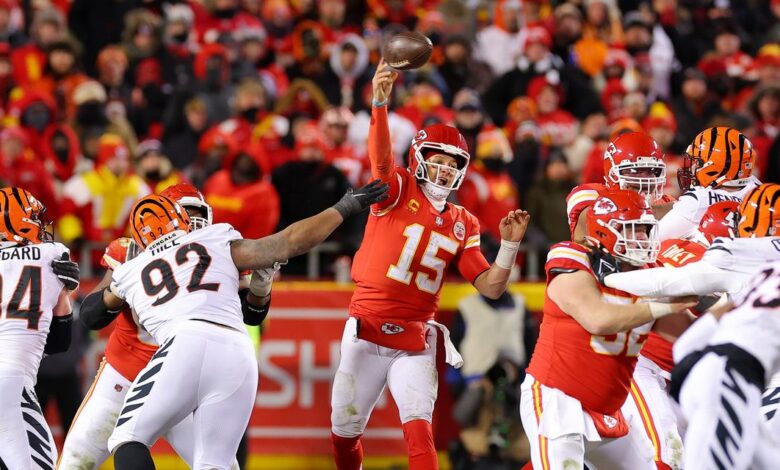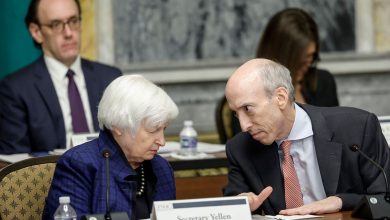What the Eagles-Chiefs Super Bowl matchup can tell us about the stock market

[ad_1]
In this column I will reveal the team that the creator of the famous Super Bowl Predictor hopes will win this year.
The Predictor, of course, is the infamous indicator that says the market will rise so long as the game’s winning team can’t trace its roots back to the original American Football League (which merged with the National Football League in 1966). For 2023, that means the market will be higher if the Philadelphia Eagles win, and fall if the Kansas City Chiefs come out on top.
Read: Philadelphia Eagles emerge as early Super Bowl favorites over Kansas City Chiefs
As far as I can tell, credit for discovering the Super Bowl Predictor goes to Leonard Koppett, a sportswriter and a member of the baseball Hall of Fame; his first mention of the indicator that I could find was in Sporting News in February 1978. William LeFevre, editor of a newsletter called the Monday Morning Market Memo, publicized Koppett’s suggestion, and subsequently as well by Robert Stovall, who at the time was president of the investment firm Stovall Twenty First Advisors.
Though Koppett died in 2003, I can be confident that he’d couldn’t care less about who wins the Super Bowl this year. That’s because he said that he introduced the Super Bowl Indicator as a joke. Several decades later, in light of how many on Wall Street nevertheless paid serious attention to the Predictor, he said it was an “embarrassment.” Late in his life he said that he hoped the indicator would be declared “dead as a doornail.”
The statistics certainly support his hope. Starting with the Super Bowl in 1978, when Koppett first “discovered” the Predictor, there have been 46 Super Bowls. In 28 of those years it correctly forecast the direction of the S&P 500
SPX,
over the remainder of the year—or 60.9% of the time. Since this is better than 50%, you might think its record is impressive, but you’d be wrong. That’s because you would have had a better record simply predicting that the stock market would always go up—76.1%.
The Predictor’s failures are particularly evident when we focus on just those years since 1978 in which the Super Bowl was won by a team that could trace its roots back to the original A.F.L. These are the years in which the market supposedly should fall at an above-average rate. In fact, however, in just 18.2% of those years did the stock market proceed to fall for the rest of the year.
This was the case the last time an original A.F.L. team won—in 2020, when the Chiefs were victorious. From that year’s Super Bowl to the end of the year the S&P 500 rose 16.4%.
If only we will be so lucky this year.
Mark Hulbert is a regular contributor to MarketWatch. His Hulbert Ratings tracks investment newsletters that pay a flat fee to be audited. He can be reached at mark@hulbertratings.com.
[ad_2]
Source link



